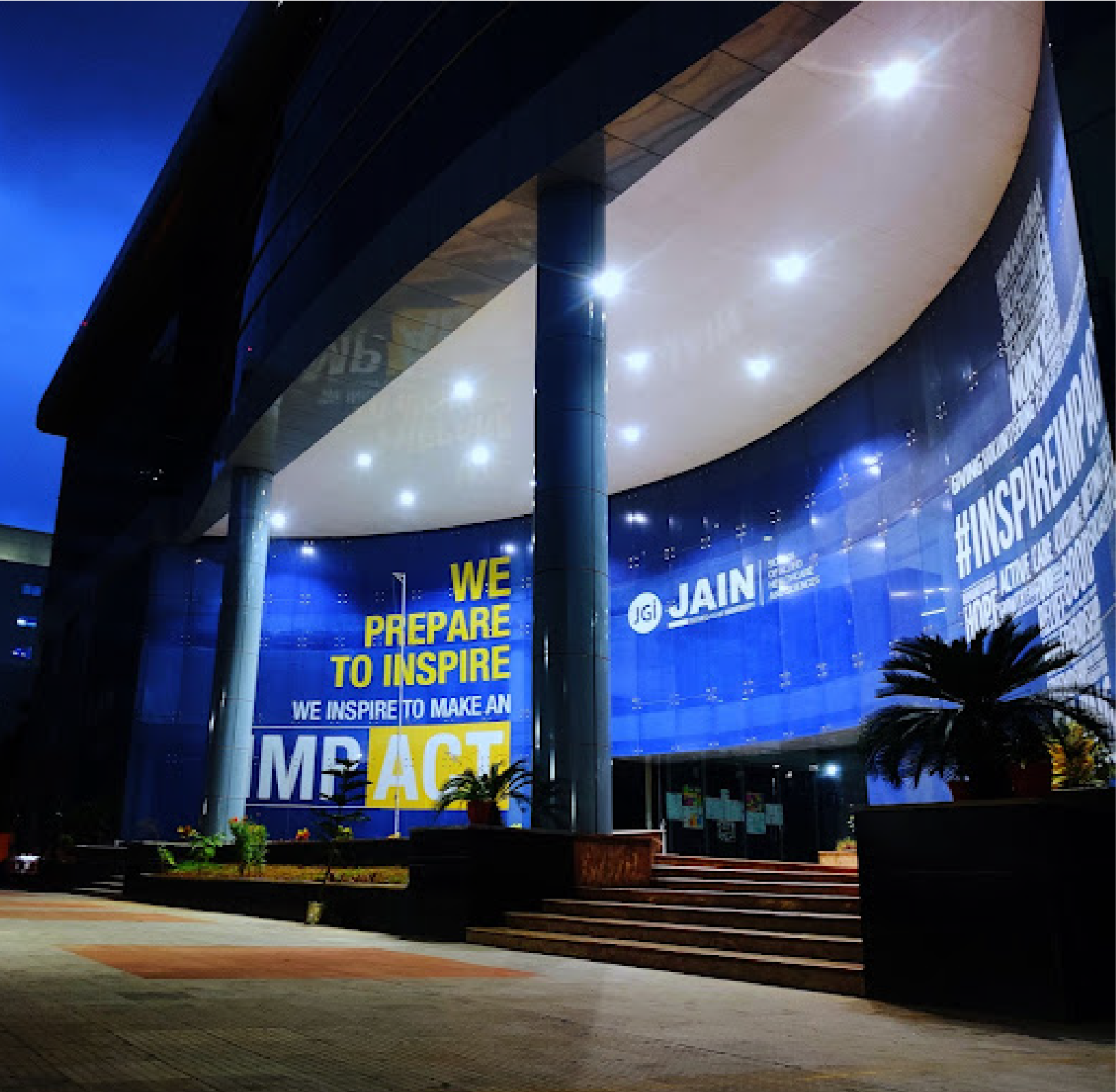Eligibility for B.Sc Cardiac Technology:
The minimum qualification for eligibility of B.Sc Cardiac Technology is a pass in 12th std/PUC in science stream from CBSE/ISC or any other equivalent board, with a minimum 50% in PCMB and a pass in English.
Contact us:
Phone Number: 9606978661, 6366828477
Email : sahs@jainuniversity.ac.in
Curriculum Structure:
The B.Sc Cardiac Technology subjects are thoughtfully structured to provide students with a well-rounded education that prepares them to excel in this critical healthcare discipline.
| Semester |
Name of the subject
|
| Semester 1
|
- Anatomy -I
- Physiology -I
- Pathology -I
- English-I
- Computer Applications
- Open Elective
- Practical- Anatomy & Physiology -I
|
| Semester 2
|
- Anatomy -II
- Physiology -II
- Pathology -II
- Introduction to Cardiac Technology -I
- English -II
- Legal Aspects of Healthcare
- Open Elective
- Mind Management & Human Values –II
|
| Semester 3
|
- Biochemistry -I
- Microbiology -I
- Introduction to Cardiac Technology -II
- Medicine Relevant to specialisation
- Communicative English
- Healthcare Administration
- Open Elective
- Environmental studies
- Internship
- Project Centric Learning (PCL)-3
|
| Semester 4
|
- Biochemistry -II
- Microbiology -II
- Cardiac Technology -Clinical
- Open Elective
- Indian Constitution
- Practical-Biochemistry and Microbiology-II
- Internship
- Project Centric Learning (PCL)-4
|
| Semester 5
|
- Cardiac Technology- Applied
- Practical Applied Pathology-I
- Practical-Cardiac Technology Applied
- Internship
- Project Centric Learning (PCL)-5
|
| Semester 6
|
- Applied Pharmacology -II
- Applied Microbiology -II
- Applied Pathology -II
- Cardiac Technology- Advanced
- Practical-Cardiac Technology Advanced
- Internship
- Project Centric Learning (PCL)-6v
|
| Semester 7 & 8
|
- Internship/on job training
|
Studies after B.Sc Cardiac Technology:
After completing B.Sc Cardiac Technology, there are several further study options you can consider to advance your career and deepen your expertise in the field. Here are three to four options:
Master's in Cardiovascular Technology or Cardiovascular Science:
Pursuing a master's degree in cardiovascular technology or a related field which is also provided by several good Cardiac Technology colleges in Bangalore, can equip you with advanced knowledge and skills. This may include specialised areas such as interventional cardiology, electrophysiology, or echocardiography. It can also open up opportunities for leadership roles in healthcare settings.
Postgraduate Diploma in Healthcare Management:
This program will equip you with skills in healthcare policy, administration, and leadership, allowing you to contribute to the efficient functioning of cardiac care units.
Ph.D. in Cardiovascular Science or a Related Field:
If you have a strong interest in research and academia, pursuing a Ph.D. can be a pathway. This allows you to delve deeply into cardiovascular science, contribute to research in the field, and potentially teach at the university level.
Fellowship Programs in Interventional Cardiology or Electrophysiology:
Consider enrolling in fellowship programs that focus on interventional cardiology or electrophysiology. These programs provide hands-on, specialised training in these advanced areas of cardiac care, making you an expert in specific procedures and technologies.
Career Progression after pursuing B.Sc Cardiac Technology:
| Duration |
Roles and responsibilities
| Salary |
| 0-3 years
|
Conducting ECGs, stress tests, and Holter monitoring.
|
Average monthly earnings ranging from ₹75,000 to ₹225,000, depending on location and specific job roles.
|
| 3-5 years
|
Cardiac Technologist or Cardiac Sonographer.
|
Average monthly earnings ranging from ₹225,000 to ₹375,000, depending on location and specific job roles.
|
| 5-10 years
|
Cardiac Catheterization Technician or Cardiovascular Perfusionist,
and may have taken on leadership or supervisory positions within your workplace.
|
Average Monthly earnings ranging from ₹300,000 to ₹525,000, depending on location and specific job roles.
|
| 10 years and beyond
|
Clinical Coordinator, Cardiac Nurse Specialist, or even holding administrative positions in cardiac care units.
|
Monthly earnings can range from ₹450,000 to ₹750,000 or higher, reflecting your advanced expertise and contributions to the field.
|
Please Note: Salaries can significantly increase based on leadership roles and responsibilities. These salary ranges are approximate and can vary based on factors like the size and reputation of the employer, the candidate's expertise, and the region of employment.
Salaries can vary based on prevailing market dynamics and individual skill levels.


